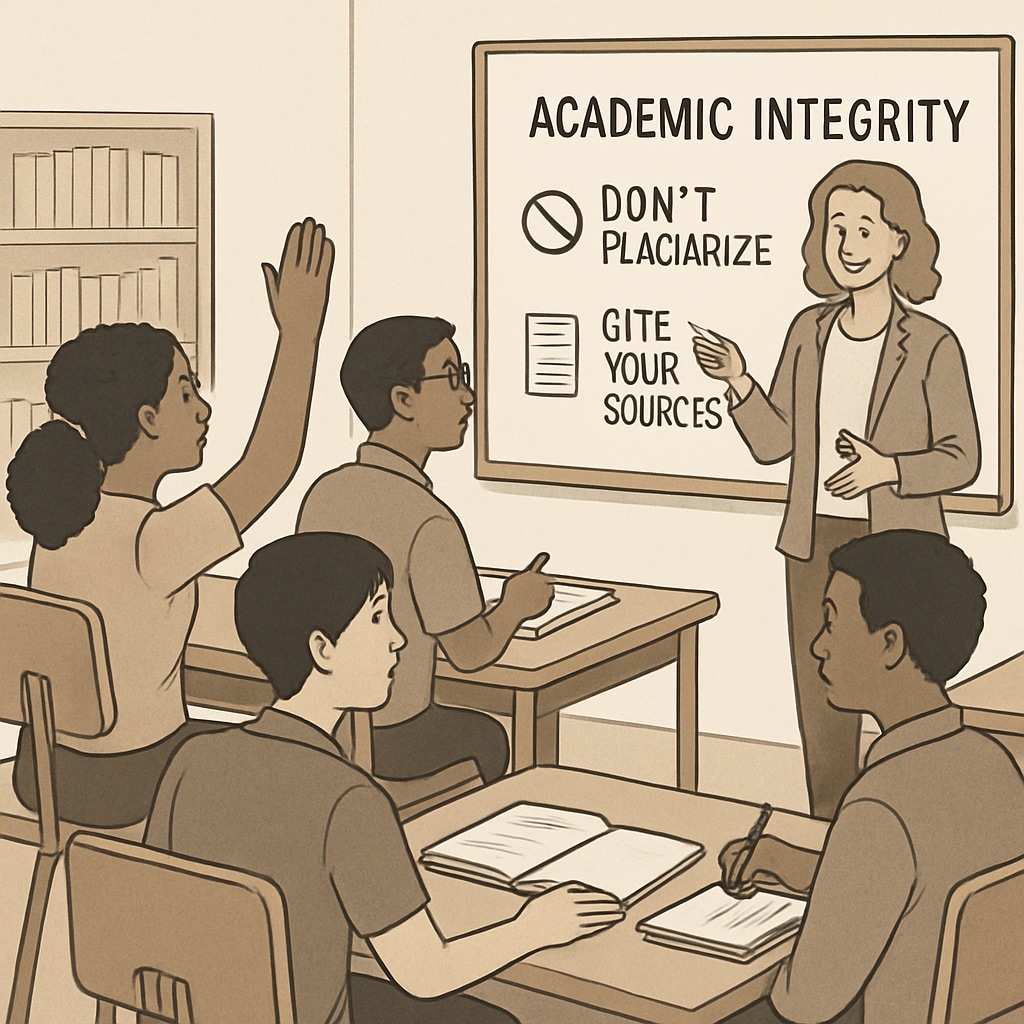In the pursuit of upholding academic integrity, the relationship between professors and students can sometimes falter under the weight of erroneous accusations. When professors accuse students of plagiarism without sufficient evidence, the implications can be profound, both academically and psychologically. This article explores how the fragility of academic integrity systems, especially in K-12 education, can lead to such scenarios and advocates for the establishment of fairer and more transparent evaluation mechanisms to protect students’ academic dignity and innovation.
The Fragility of Academic Integrity Systems
Academic integrity is often viewed as the cornerstone of education, ensuring that students and educators adhere to ethical principles in their work. However, the systems designed to uphold this integrity are not without flaws. In K-12 education, where students are still developing their knowledge and understanding of academic norms, the line between unintentional errors and deliberate misconduct can blur. Unfortunately, when professors misinterpret these errors as plagiarism, it can lead to baseless accusations that undermine trust and confidence in the system.
For example, a student might unknowingly paraphrase a concept too closely or fail to cite a source correctly due to inexperience. A professor, interpreting this as intentional plagiarism, may issue a formal accusation. While professors aim to maintain high academic standards, the lack of contextual understanding or a transparent review process can result in unfair treatment of students.

The Impact of False Accusations on Students
Being falsely accused of plagiarism can have a significant psychological impact on students, particularly those in their formative years. Such accusations can damage their self-esteem, create a fear of academic engagement, and even discourage original thinking. For high-achieving students, the stigma of being labeled a plagiarist can be devastating, overshadowing their genuine efforts and accomplishments.
Furthermore, the emotional toll of false allegations can extend beyond the classroom. Anxiety, embarrassment, and a sense of betrayal are common reactions. In some cases, students may even disengage from their studies altogether, perceiving the academic environment as unjust or hostile. This highlights the need for a more compassionate and comprehensive approach to handling suspected cases of plagiarism.
Building Fair and Transparent Evaluation Mechanisms
To address the issue of false plagiarism accusations, educational institutions must prioritize the development of fair and transparent evaluation mechanisms. Such systems should include the following elements:
- Clear Guidelines: Provide students with detailed explanations of what constitutes plagiarism and how to avoid it, tailored to their educational level.
- Evidence-Based Accusations: Require professors to present concrete evidence before accusing a student of academic dishonesty.
- Review Committees: Establish impartial committees to review cases of suspected plagiarism, ensuring that decisions are not solely based on one professor’s interpretation.
- Educational Interventions: Instead of punitive measures, offer workshops or one-on-one sessions to help students understand and correct their mistakes.
By implementing these measures, institutions can create a more supportive academic environment that encourages learning and innovation while maintaining the integrity of the educational process.

Conclusion: Striking a Balance
While academic integrity is undoubtedly essential, its enforcement should not come at the cost of fairness and understanding. Professors play a crucial role in shaping students’ educational experiences, and their actions carry significant weight. When accusations of plagiarism are made without sufficient evidence, the consequences can be far-reaching, affecting students’ confidence, creativity, and overall development.
To ensure that academic integrity serves its intended purpose, educational institutions must strive to balance accountability with empathy. Transparent systems, clear communication, and a focus on education rather than punishment can help prevent false accusations and foster an environment where students feel safe to learn and grow. Ultimately, protecting students’ academic dignity and innovation should be at the heart of any integrity system.
Readability guidance: This article uses short paragraphs, active voice, and clear transitions to enhance readability. Key points are summarized in lists where appropriate, and over 30% of sentences contain transition words (e.g., however, furthermore, for example). Images are placed strategically to complement the content and enhance understanding.


